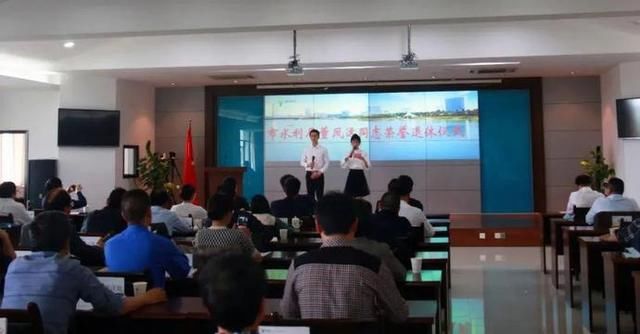еҸ‘иҫҫеӣҪ家зҡ„зҺҜдҝқNGOзҡ„еҪұе“ҚжңүеӨҡеӨ§
еҜ№дәҺдёӯзҫҺзҺҜеўғNGOзҡ„жҜ”иҫғпјҢжҲ‘еҶҷиҝҮдёҖзҜҮиӢұж–Үзҡ„еҚҡе®ўдҪңдёәеҜ№з…§гҖӮж—¶й—ҙжңүйҷҗпјҢжҲ‘е…ҲиҙҙдёҠжқҘдҫӣеӨ§е®¶еҸӮиҖғгҖӮеҰӮжһңжңүз”ЁпјҢжҲ‘дјҡжүҫж—¶й—ҙзҝ»иҜ‘дёҖдёӢпјҡA comparison of environmental groups between China and the U.S.The past two decades have seen an explosive growth of civil organizations in China. By the end of 2007, registered civil organizations reached 387 thousands, 87 folds of the number in 1988, not including the unregistered vast majority. Among them, environmental NGOs (ENGOs) are the most dynamic ones. Some high profile campaigns led by them have successfully influenced the policy decisions and halted several large infrastructure projects which were assessed as having high environmental impacts. Despite its rapid development in both size and influence, the ENGOs in China have embedded вҖңChinese CharacteristicsвҖқ which may limit their development and their roles in tackling environmental issues. In this short article, I will focus on the comparison of ENGOs between China and the U.S. in the following areas: autonomy, repertoires and capacity.AutonomyThe close tie between social groups and the government is probably the biggest difference between the U.S and Chinese ENGOs. Even within the country, the degree of autonomy among ENGOs varies. The least autonomous social organizations are those вҖңgovernment-organized NGOsвҖқ and вҖңquasi-governmental NGOsвҖқвҖ“ which are established by state agencies or well-known Chinese leaders. They are more extended governmental branches than social groups, and typically come into existence for administrative reasons, research purposes or facilitating work with international NGOs. As for more western-like ENGOs, some autonomy will be lost in the process of legalization. In China, to achieve legal status, a civil organization must be sponsored by an administrative department, as stipulated by the вҖңRegulations on the Registration and Administration of Social OrganizationsвҖқ. The existence of a state or party sponsor, also called вҖңmother-in-lawвҖқ, is to supervise, review and approve budgets for the civil group. In addition, a couple of principles further restricted the freedom of civil groups: 1) There can be only one registered organization in a given field of work at each administrative level and no branch can be established; 2) It is required for civil groups to report major events to sponsor departments3)Registration must be renewed annually. Even though some freedom will be deprived, most ENGOs still strive to acquire legal status for their organizations in that they can access more funding, human resources, and data on the state of environment.RepertoiresCompared to the U.S. ENGOs, Chinese groups have fewer tactics to mobilize the public or influence policymaking. Unlike some U.S. challenging groups who often use unconventional activities such as protests or demonstrations to disrupt political balance and gain attention to some problems, Chinese ENGOs will try to avoid those confrontational tactics. Although campaign is also a common tactic for Chinese ENGOs, they try to use more moderate forms such as collecting signatures, writing petition letters or giving public presentations. As some environmental leader said, вҖңSurvival is of paramount importance. Radical actions can get NGOs вҖҳkilledвҖҷвҖқ. Furthermore, few Chinese ENGOs truly have the awareness of environmental governance, as evidenced by their inactive participation in policymaking process. For example, in 2004, whereas 12 companies applied to attend a public hearing on waste emission permits, organized by the State Environmental Protection Administration (SEPA), no ENGOs did that. More influential and common repertoires used by Chinese ENGOs are mobilizing practices, particularly through media, internet, workshops and conferences.CapacityWhile many U.S. ENGOs boast flourished think-tanks, ChinaвҖҷs environmental groups are severely constrained by their paucity of human capital. The vast majority of the staff in Chinese ENGOs lack environmental science knowledge or professional background. This challenge is due to several factors, such as an overall shortage of environmental professionals across China, weak status of environmental organizations and low compensations. As a result, ChinaвҖҷs ENGOs can hardly reach out to international issues, such as climate change, global trade, etc. They tend to focus on less complicated local issues due to lack of resource and expertise.ConclusionAlthough there has been a fast growth of environmental social groups in China, the political and social influence of these groups is still limited. Their development largely depends on government support, but their activities are also constrained by government control. Moreover, a big gap exists between Chinese ENGOs and western groups in terms of tactics to influencing policymaking, access to resources and human capital. With those challenges ahead, ENGOs in China can only play an insignificant role in environmental governance, at least currently. Yueqin Cui (2009). "The opportunities and constraints of Chinese civil organizations in a period of national transition." Jilin University Journal Social Sciences Edition49(3): 20-26. Lu, Y. (2007). "Environmental civil society and governance in China." International journal of environmental studies64(1): 59-69Schwartz, J. (2004). "Environmental NGOs in China: roles and limits." Pacific Affairs: 28-49. The Regulations on the Registration and Administration of Social Organizations, promulgated in 1998, are the primary legislation governing the registration and administration of NGOs in China. Under their provisions, in addition to requiring that the establishment of a civil organization be registered with the civil affairs department, approval documents must also be submitted by the administrative department primarily responsible. Lieberthal, K. (1997). "ChinaвҖҷs governing system and its impact on environmental policy implementation." China Environment Series1(1997): 3-8 See footnote 1 See footnote 2 Yang, G. (2005). "Environmental NGOs and institutional dynamics in China." The China Quarterly181(1): 44-66 See footnote 3 See footnote 2
в– зҪ‘еҸӢ
жҺЁиҚҗйҳ…иҜ»
- жҺҘеҫ…ж—Ҙ|зңҒз”ҹжҖҒзҺҜеўғеҺ…жқҘйҖҡејҖеұ•вҖңдјҒдёҡзҺҜдҝқжҺҘеҫ…ж—ҘвҖқ
- |PHEVиҪҰж¬ҫжІЎжҜ”иҫғзҺҜдҝқпјҢж–°иғҪжәҗжҳҜеҗҰеӯҳеңЁи°ҺиЁҖе‘ўпјҹ
- зӣҗеҹҺзҺҜдҝқ科жҠҖеҹҺзәӘе·Ҙ委дёәй«ҳиҙЁйҮҸеҸ‘еұ•дҝқй©ҫжҠӨиҲӘ
- и¶ЈеӨҙжқЎ|зҺҜдҝқе°–еӯҗз”ҹ иҜ•й©ҫйӣ·е…ӢиҗЁж–ҜUX 300e
- зҺҜзҗғиҪҰи®ҜзҪ‘|зІҫе“ҒеӨҡеҠҹиғҪпјҢе»үд»·жӣҙеӣһжң¬пјҢйӣ·иҜәKangoo/ExpressеҸ‘еёғ
- е…ЁзҗғжёёиүҮи°ҚжҠҘ|ж°ҙеҠӣеҸ‘з”өдјҡжҲҗдёәжңӘжқҘзҺҜдҝқжёёиүҮзҡ„дё»жөҒиғҪжәҗеҗ—пјҹ
- з”өеҠӣеӨ§ж•°жҚ®еҠ©еҠӣзҺҜдҝқйғЁй—ЁзІҫеҮҶжІ»зҗҶжҺ’жұЎдёҚиҫҫж ҮдјҒдёҡ
- е…¬ж¬ҫ|
- и¶ЈеӨҙжқЎ|еҲ«еҶҚиЎҘиҙҙжҸ’з”өж··еҠЁдәҶпјҢйӮЈжҳҜеҒҮзҺҜдҝқпјҒ
- |е®ҝиҝҒзҹҝеұұзӨҫеҢәжүӢе·ҘеҲ¶дҪңеҹ№е…»е°‘е„ҝзҺҜдҝқж„ҸиҜҶ















